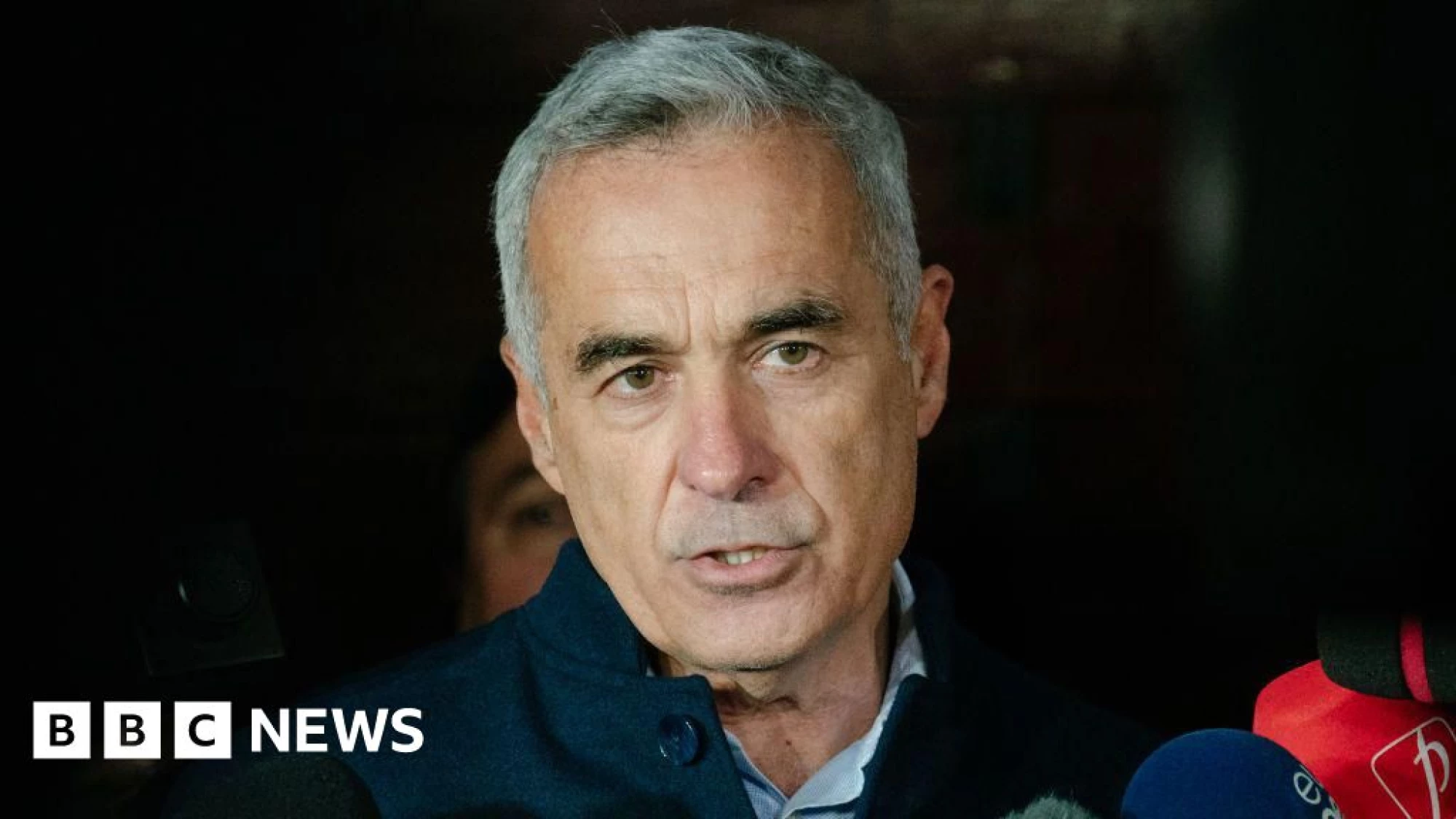Romania hit by major election influence campaign and Russian cyber-attacks

Romania's intelligence service reveals details of what it says is an attempt from abroad to meddle in the country's presidential election.
British Broadcasting CorporationWatch LiveHomeNewsSportBusinessInnovationCultureArtsTravelEarthVideoLiveHomeNewsIsrael-Gaza WarWar in UkraineUS & CanadaUKUK PoliticsEnglandN. IrelandN. Ireland PoliticsScotlandScotland PoliticsWalesWales PoliticsAfricaAsiaChinaIndiaAustraliaEuropeLatin AmericaMiddle EastIn PicturesBBC InDepthBBC VerifySportBusinessExecutive LoungeTechnology of BusinessFuture of BusinessInnovationTechnologyScience & HealthArtificial IntelligenceAI v the MindCultureFilm & TVMusicArt & DesignStyleBooksEntertainment NewsArtsArts in MotionTravelDestinationsAfricaAntarcticaAsiaAustralia and PacificCaribbean & BermudaCentral AmericaEuropeMiddle EastNorth AmericaSouth AmericaWorld’s TableCulture & ExperiencesAdventuresThe SpeciaListEarthNatural WondersWeather & ScienceClimate SolutionsSustainable BusinessGreen LivingVideoLiveLive NewsLive SportHomeNewsSportBusinessInnovationCultureArtsTravelEarthVideoLiveAudioWeatherNewslettersRomania hit by major election influence campaign and Russian cyber-attacksGetty ImagesCalin Georgescu, who has praised Vladimir Putin, was almost unknown in Romania until he won the first round of voting in the presidential electionsAuthorities in Romania have revealed details of what appears to be a major attempt to interfere in the country’s presidential elections using the social media platform TikTok, and with a series of cyber-attacks.
Romania's domestic intelligence service says there are signs the effort was "co-ordinated by a state-sponsored actor".
Calin Georgescu, a far-right Nato-sceptic who has previously praised Vladimir Putin, was almost unknown in Romania until he won the first round of voting in the presidential elections two weeks ago.
Now Romanian intelligence says his sudden and surprise surge in popularity is down to a "highly organised" and "guerrilla" campaign on social media, sharing identical messaging and using influencers.
They say it was conducted from "external locations" to bypass controls.
https://www.bbc.com/news/articles/cgq18w507dko
Rating: 5